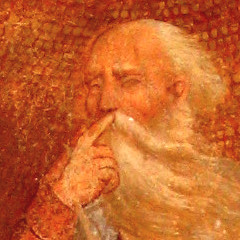
Our creatureliness explains why we find ourselves enmeshed in this thicket. As creatures, we are self-protective. Vulnerable to life’s vicissitudes, we face a future with a million possibilities, some of them dangerous and threatening. Natural responses to this reality range from conservatism and caution to fear and dread.
To compound the problem, we typically cope with uncertainty by trying to settle things in advance, to limit our vulnerability. We tell ourselves stories about the future, how it will all work out. We imagine different scenarios, sometimes piling one upon another.
We take supposed information about our health, our finances, our relationships, whatever, and knit together a narrative that gives it all meaning. If we know what’s really behind the raised eyebrow of our boss, the discomfort in our stomach, the evasiveness from our spouse, we think that we can finally find some certainty, some calm.
But it doesn’t work. Usually our stories are wrong. And if we are right once, what about the next time? And the times after that? We see a few data points, maybe dozens, but there are countless others that we cannot see and know. Beyond that, assuming we had all (or even most) of the facts, our ability to synthesize and formulate predictions is anything but absolute. We can (and often do) drive ourselves to despair just trying.
Isn’t this why Christ says to take no thought for tomorrow, that the present day has enough troubles of its own? He’s not saying to eschew planning or preparedness. He’s saying not to live in a future that hasn’t yet arrived, one about which we are prone to fret and worry.
Paul gets at the same point when he tells us to be anxious for nothing, but with prayer and thanksgiving, make our requests to God. Paul urges gratitude for the moment and trust for tomorrow.
To do this we need to quiet our imaginations and still our restless minds. The monastic writers of the Church all stress this point. Our imagination leads us astray. We fabricate a world (or worlds) and then live in function of our fantasies, often tormenting ourselves in the process.
When we do this, we show ingratitude for the moment (because we’re obsessed with the future or some alternate reality, not the present reality we possess by God’s grace) and a lack of trust in God (because ultimately, the future is in God’s hands, not our minds).
Life is constantly changing, but God is changeless. He brings the future to pass with our ultimate good in mind.











